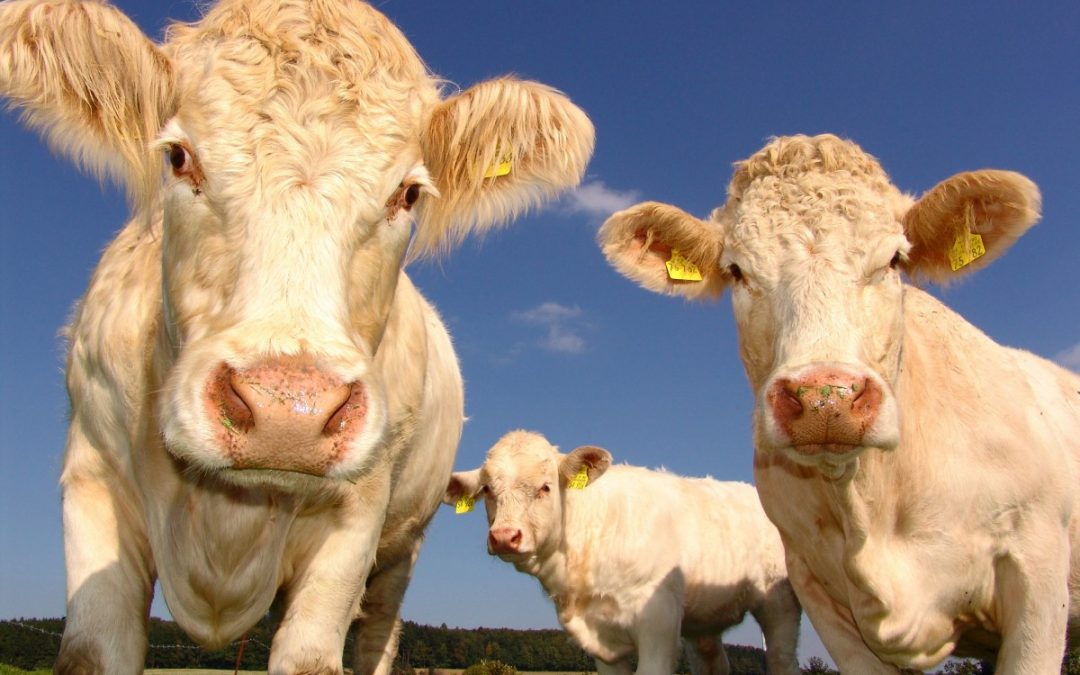Lab food: how do we feel about it? Well, soon, there will be 9 billion humans crawling all over this little planet. All of them will want food every day. In fact they will want food three times today. And we are not going to be able to produce enough food for everyone using current methods. So we need to come up with solutions, and fast.
Scientists are making unbelievable headway in trying to feed everyone across the globe. The main thrust of the research is to make food in a lab, rather than in field like we are now. And they are coming up with some wildly promising ideas. While lab food might be treated with suspicion by consumers, with overpopulation and famine looming, we might not get the choice to be such picky eaters. And the good thing about lab food is that animals are not used in the mass-production of our protein needs, which is kinder to the animals, and planet.
Lab Milk
As scientists master making milk in the lab, dairy farms could be scaled down. The land could then be used for other food items that have not yet been conquered by biotech. And that is exactly what is happening. Lab foods are a thing,.

A start-up company called Perfect Day wants to use biotechnology in the lab to make cow’s milk…without using any cows at all. So how do they do it? Instead of having cows do all the work, they make milk with a process similar to craft brewing.
Using yeast and age-old fermentation techniques, Perfect Day can manufacture the very same milk proteins that cows make naturally. Like cows, the yeast needs to graze to make milk proteins. Instead of grass, they feed their yeast sugar from renewable sources. Then they leave it to ferment.

A start-up company called “Perfect Day” uses biotechnology to make cow’s milk…without needing any cows at all.
Like the Real Thing
This age-old process (used to brew beer, leaven bread, and make pickles) transforms sugar into real milk proteins. The result, they say, is a perfect taste, texture, and mouthfeel – with none of the cholesterol or lactose found in cow’s milk.
It has the vitamins and minerals found in cow’s milk, like calcium and vitamin D, plus other powerhouses like omega-3s. And, thanks to the yeast, the “milk” contains the very same protein found in cow’s milk. Then they add a mix of plant-based sugars, fats, and minerals to make a totally new kind of dairy milk without chemicals, hormones, lactose, or other additives.
Think this is far off? You can actually buy the stuff now! Their first batch of lab ice-cream went on sale just this summer, and it sold out! But they are making more, so keep an eyeball on the website for updates!
No Cows
The company says, “Animal-free dairy milk is just like cow’s milk because it’s crafted with real milk proteins – casein and whey – but is made without a single cow. Perfect Day is the first of its kind, and delivers the same delicious taste and texture as cow’s milk, but without the harmful side effects or allergens present in dairy milk. Our process is more humane, eco-friendly, and sustainable than industrial dairy production. We were hungry for a solution that empowers people to help make the world a kinder, greener place without giving up the delicious dairy foods they love.”
The company say that their products are cleaner, greener, and kinder than dairy produced by factory farming. “At scale, crafting Perfect Day could use up to 98% less water, 91% less land, 84% less greenhouse gas emissions, and 65% less energy than typical industrial dairy production. We completely control our process from end to end, which ensures our products are free of the food safety and bacterial contamination risks that come with dairy products. They also have a longer shelf life. But because we use real milk proteins to craft our products, we’re able to achieve the same delicious taste, texture, and versatility of cow’s milk, while being nutritionally superior in every way. All of these ingredients are familiar to your body.”
Moo
The good news is that the milk won’t need pasteurisation, since it is produced in super-clean lab conditions. But there’s more. By changing the recipe a little, they can create milk from other animals, like goats. And, just like normal cows’ milk from dairy farms, the lab milk can be made into cheese and other products. Just like humans had to domesticate cows (from wild aurochs) before we could farm them, this lab-milk process is possible because humans have developed a dairy yeast that can produce milk proteins. If this milk is accepted by consumers, then we really are in the next age of farming.
Manufactured Flesh
A company called Modern Meadow are dabbling in food tech – they are well on their way to producing a printed steak. As far as lab food goes, this must be the holy grail. The concept has been backed by investor and Paypal founder Peter Theil. His philanthropic foundation has coughed up $350,000 to fund the development of a 3D bioprinting process which aims to create an “edible prototype” of a steak. And let’s face it, a steak is a steak, you know it is going to be good, no matter where it comes from.
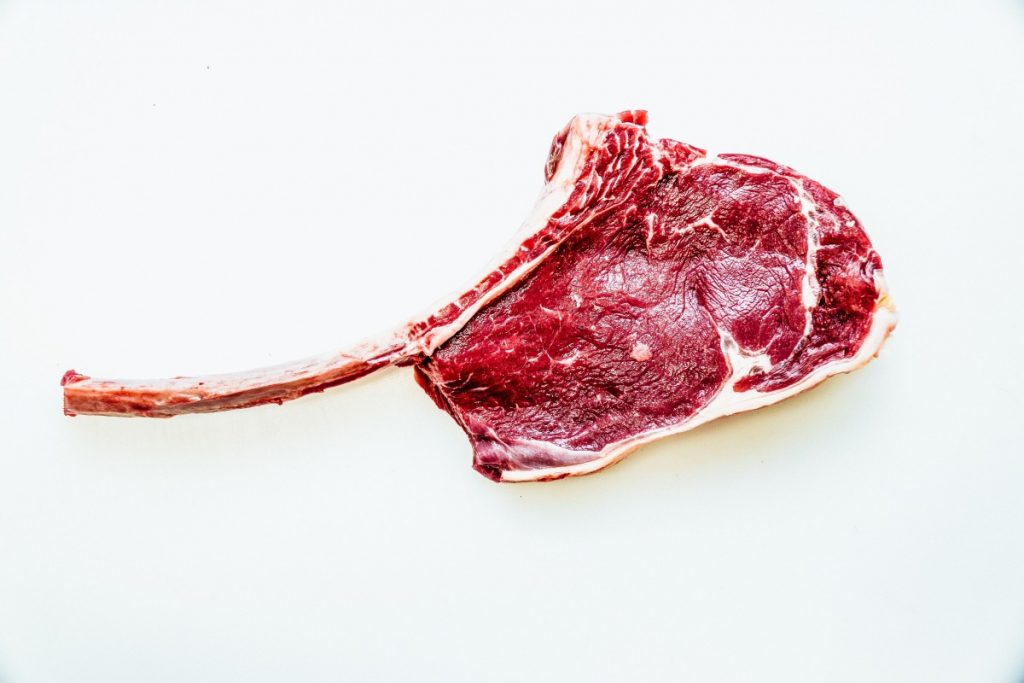
Manufactured steak is on the way. There’s no such thing as a bad steak, right?
While this is still experimental and a printed steak is still some time away, the possibilities are exciting. Here’s a new spin on that idea that is launching right now. Modern Meadow is working hard to produce leather in the lab. They will do this by 3D-printing it. Sort of. If they pull it off, the process will make leather that is cheaper, safer and more humane than conventional leather.

Leather is being re-imagined to create revolutionary new features without harming animals or the environment.
Leather is being re-imagined to create revolutionary new features without harming animals or the environment.
How to Make Lab Leather
Modern Meadow call themselves a “biofabrication company.” Already their prototypes are hitting the news. The leather they are making is blemish-free, hair-free and fat-free. There are benefits to leather printing other than a more humane world. The land that is now being used to run cattle could be repurposed, or repopulated with native wildlife once again. This could mean the return of creatures on the brink of extinction.
So how does Modern Meadow make this “real” leather in a lab? It uses collagen, protein and other essential building blocks found in animal skin to recreate aspects of traditional leather, including suppleness and breathability, while enabling new properties not possible from animal hide, such as improved strength-to-weight ratio.
“Modern Meadow harnesses the combined power of design, biology and engineering to change the way we think about materials, unlocking the capabilities of nature,” said Andras Forgacs, CEO of Modern Meadow. “Leather, which represents a $100-billion raw material market, has always been prized for its beauty, functionality and enduring status. Today, as a co-product of the meat industry, it is subject to fluctuations in availability, quality, price and growing demand. At Modern Meadow, we’re reimagining this millennia-old material to create revolutionary new features without harming animals or the environment.”
No Waste
Modern Meadow’s biofabricated leather also reduces waste by up to 80% compared to traditional leather. Since leather is the tanned skin of an animal – such as cow, sheep or alligator – biofabricated leather, unlike animal hide, can be produced according to the size and shape required, minimising waste. Moreover, a biofabricated material involves reduced tanning and lower inputs of land, water, energy and chemicals.
Mike Harden is a senior partner at ARTIS Ventures, a company who has invested in the idea. “We take a longterm view, supporting ambitious companies that use science to solve challenging problems. Modern Meadow has exactly what we look for in a company: a talented team tackling a difficult problem with a differentiated approach.”
Lab-Grown Eggs
Eggs are everywhere, and in everything. But a company called Clara Foods say they want to manufacture egg whites in the lab (mostly for baking products) to help take the pressure off the factory farming system of egg production. The company already has had a pile of venture capital thrown at it on the understanding that it will create the world’s first animal-free egg white. They say they are “working towards a disruptive advance in food technology.”
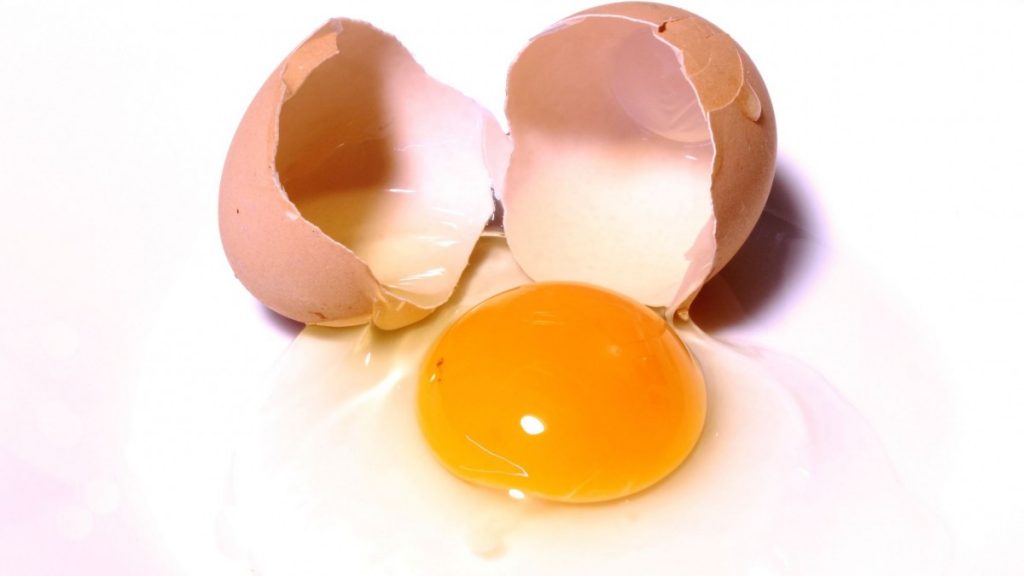
Egg whites will soon be manufactured in the lab, without the need to bother a single chicken.
Clara Foods join a new generation of entrepreneurs, activists and scientists who recognise that the decades old factory farm model cannot sustain the dietary needs of 7 billion people and counting. According to Clara Foods, growing demand for eggs is exerting pressure on hatcheries to improve their efficiencies and outputs. “There is also growing public distaste for the environmental, animal welfare, and health compromises of industrial-scale egg production.”
Clara Foods aims to take the chicken out of the equation. “We’re bringing an egg white to the table that is produced completely animal-free, uses less land and water inputs, while matching the taste, nutritional value, and unique culinary properties of hen-borne egg whites.”
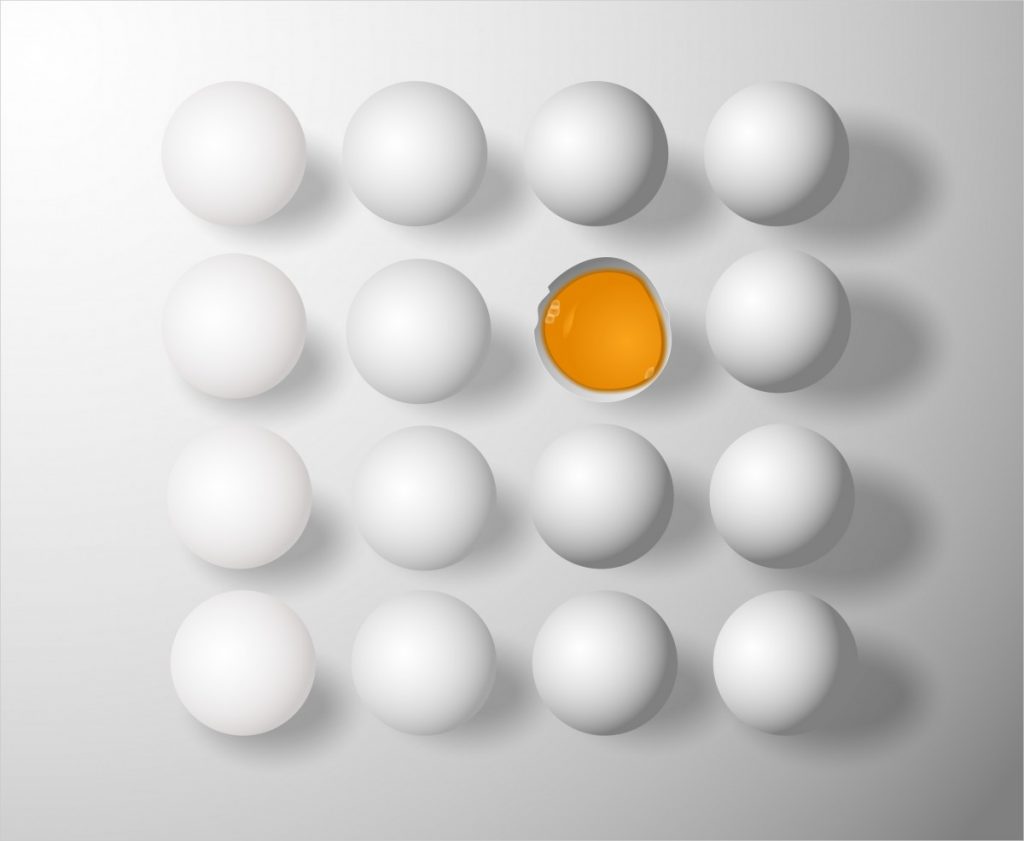
Clara Whites
The product – called Clara Whites – will replace egg whites in more applications than any other egg white substitute. Unlike other replacements on the market, the Clara Whites product works in even the most sensitive products such as angel food cakes, meringues, and macaroons. They say that their baking and binding applications team uses a type pf protein matrix that delivers improved volume, foaming, texture, and tensile strength.

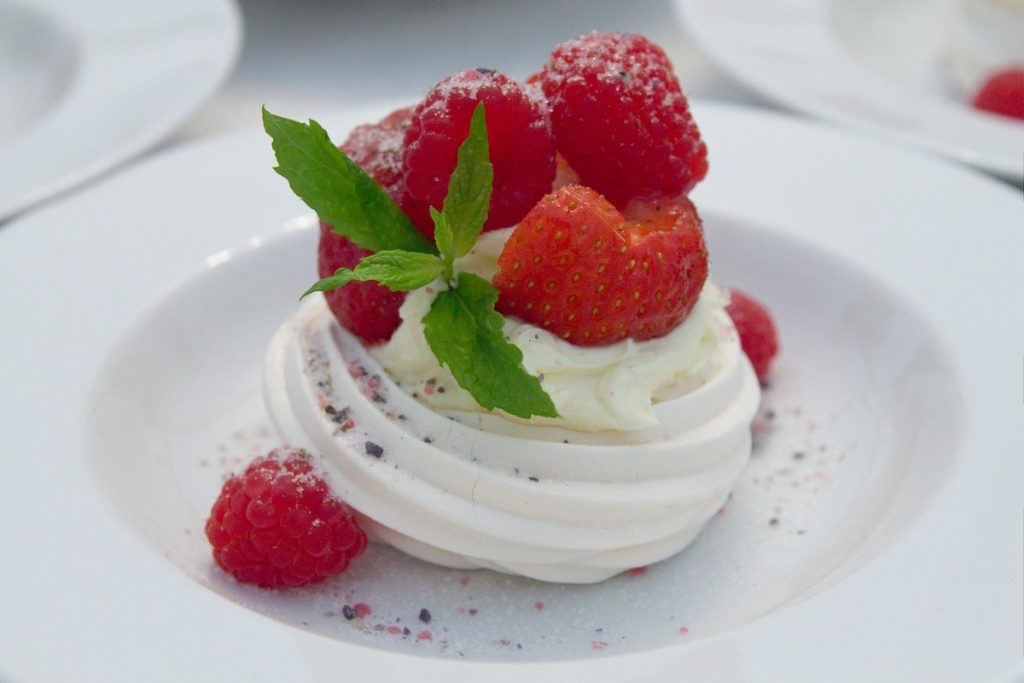
Many companies produce artificial egg whites for baking. Such products can’t be used to make tricky dishes like meringues. But the Clara Whites product can be used just like normal egg whites.
Founders
The company’s founding team are Arturo Elizondo, Dr. David Anchel and Isha Datar. “We were brought together by a shared desire to find a better way. At Clara Foods, we’re re-imagining food – starting with the egg white. Egg whites are a rich source of lean protein. They have no cholesterol, no fat, and practically no carbs. It’s no wonder prices of egg whites have tripled in the last two years. But meeting the growing demand means egg production also becomes more and more wasteful, unethical, and unsustainable. Clara Foods wants to change that.
 “Our strategy is to recreate the egg, the same egg we know and love, from the bottom up. By starting at the level of the protein, rather than the chicken, we can make a better egg white for everyone, free of allergens and salmonella, and more sustainable and affordable.”
“Our strategy is to recreate the egg, the same egg we know and love, from the bottom up. By starting at the level of the protein, rather than the chicken, we can make a better egg white for everyone, free of allergens and salmonella, and more sustainable and affordable.”
We are in a new age of food production, and if we are willing to accept that this stuff has been made in a lab, we may just be doing the planet a big favour. Bon Appétit. ■
Maybe lab food is not your thing. Maybe a whiskey conference is just you style!

Editor for Silver Magazine Gold Coast
